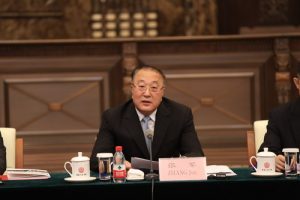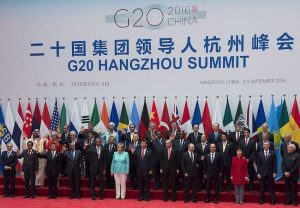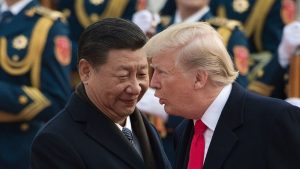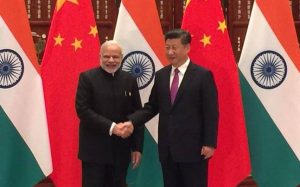
As the two-day G20 summit of the world’s most powerful economies begins in Buenos Aires on November 30, China’s G20 Sherpa and Assistant Foreign Minister Zhang Jun urges the world to unite against all forms of protectionism and safeguard the rules-based multilateral trading system to ensure that the benefits of trade are more broadly shared.
Ten years ago, the unequivocal message from the G20 on rejecting trade protectionism and fostering globalisation helped the world economy survive the most difficult times. After half a decade of disappointing growth, the past two years have witnessed signs of strong recovery. However, this promise is beginning to fade, even before the dark clouds disperse. This year, the IMF warned repeatedly against the economic wounds that result from protectionist measures.

Escalation of trade tensions could slow global growth by more than 1 per cent over the next two years. More than ever, the world benefits from, yet is divided over, trade and openness. The international order, and global and regional institutions, are beginning to be questioned. These matters will be addressed by G20 leaders at the Buenos Aires summit this week. We know that openness and cooperation are vital to improve the lives of people everywhere. We also know they are needed to address the challenges posed by demographic pressures, climate change and new technologies. However, we must manage transitions wisely, so people do not suffer or be left behind.
Uniting against protectionism

First, we should oppose protectionism in all its forms. Trade restrictions lead to more expensive products and fewer choices for consumers. Furthermore, protected industries will become less dynamic than their foreign competitors. Bilateral trade imbalances are a snapshot of the division of labour across economies. It is arbitrary to blame so-called unfair trade practices for global imbalances, and “corrective” measures will have little impact on a country’s overall trade deficit. Major economies must reduce barriers and resolve disagreements through dialogue instead of taking protectionist or unilateral measures, or disrupting global value chains.
Defending rules-based order
Second, we should safeguard the rules-based multilateral trading system. It is unthinkable for the international order to revert to the law of the jungle. We must uphold the authority and effectiveness of the rules established by the international community, not discard them for national convenience. The World Trade Organization is not perfect, but it embodies the multilateral trading system and serves the common interests of all its members. Any amendment to the rules should go through wide consultation, ensuring equal rights and opportunities for developing countries. Any reform of the WTO must not deviate from, or dilute, its core values and basic principles. Issues relating to its function and very existence must be a priority.
Sharing benefits of open trade

Third, the benefit of trade has to be more broadly shared. Over the past 25 years, trade has leveraged new technologies to boost productivity worldwide, helped to reduce global extreme poverty by more than half, and created millions of higher paid jobs. International cooperation is indispensable; greater technological transfer between countries on mutually agreed terms will facilitate global adaptation. The protection of intellectual property rights should be an impetus rather than an obstacle for the world to enter the new industrial age. China is neither the rule-maker nor the biggest winner from globalisation. But we have been determined to follow the rules and catch up with others. In the endeavour of opening up and integrating into the world economy, China is committed to trade and investment liberalisation and facilitation, while protecting the lawful rights of foreign investors.
Recently, we hosted the first China International Import Expo, and will do so every year, demonstrating a firm conviction in upholding free trade and sharing common prosperity. Henry Morgenthau said in Bretton Woods in 1944: “Prosperity, like peace, is indivisible. We cannot afford to have it scattered here or there among the fortunate or to enjoy it at the expense of others.” History tells us that trade and openness are beneficial to those who embrace them, and only by standing together can we foster a shared and better future for all our peoples. We cannot do it alone.
(Zhang Jun is China’s G20 Sherpa and Assistant Foreign Minister)
Author Profile
- India Writes Network (www.indiawrites.org) is an emerging think tank and a media-publishing company focused on international affairs & the India Story. Centre for Global India Insights is the research arm of India Writes Network. To subscribe to India and the World, write to editor@indiawrites.org. A venture of TGII Media Private Limited, a leading media, publishing and consultancy company, IWN has carved a niche for balanced and exhaustive reporting and analysis of international affairs. Eminent personalities, politicians, diplomats, authors, strategy gurus and news-makers have contributed to India Writes Network, as also “India and the World,” a magazine focused on global affairs.
Latest entries
 DiplomacyJanuary 5, 2026India walks diplomatic tightrope over US operation in Venezuela
DiplomacyJanuary 5, 2026India walks diplomatic tightrope over US operation in Venezuela India and the WorldNovember 26, 2025G20@20: Africa’s Moment – The Once and Future World Order
India and the WorldNovember 26, 2025G20@20: Africa’s Moment – The Once and Future World Order DiplomacyOctober 4, 2025UNGA Resolution 2758 Must Not Be Distorted, One-China Principle Brooks No Challenge
DiplomacyOctober 4, 2025UNGA Resolution 2758 Must Not Be Distorted, One-China Principle Brooks No Challenge India and the WorldJuly 26, 2025MPs, diplomats laud Operation Sindoor, call for national unity to combat Pakistan-sponsored terror
India and the WorldJuly 26, 2025MPs, diplomats laud Operation Sindoor, call for national unity to combat Pakistan-sponsored terror







